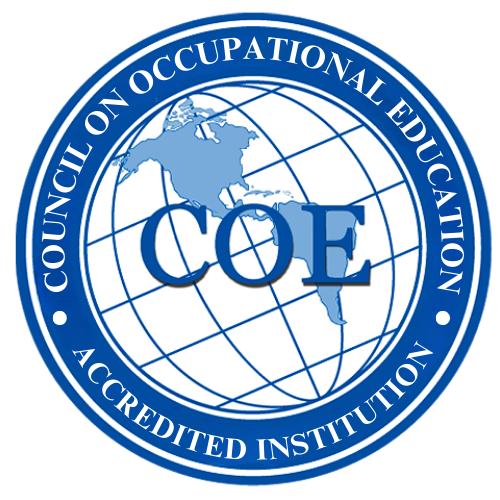Medical Billing and Coding Career
10 Tips for Getting Started With a Career in Medical Billing and Coding
Qualified medical billing and coding specialists are essential components of the burgeoning medical industry. But according to the American Medical Association, there’s a 30% shortage of medical coders.
This is often attributed to turnover, but the most common cause of this shortage is the growth of the industry itself. Hospitals and healthcare centers are having difficulty finding the coders they need to fill in the need as they expand their practices.
If you’re considering a career in medical billing and coding, you’ll be entering a fast-paced and dynamic career field with room to grow. Keep reading below for 10 tips to get started on the career path for medical billing and coding.
1. Seek Out Proper Education and Training
When starting out on a medical coding career path or a medical billing career path, the right education and training are key factors. Look for accredited programs offered by reputable institutions, such as community colleges, vocational schools, or online education platforms.
A state and federally-accredited Medical Billing and Coding program will give you the tools and training you need to launch a successful medical career. The program should cover areas such as medical terminology, anatomy, physiology, and, of course, coding systems.
Depending on your career goals, you may also consider pursuing an Associate’s Degree or a coding certification program. This can help you climb higher on the medical billing and coding career ladder. You’ll be more desirable to potential employers and you can make more money.
Medical records specialists with an Associate’s Degree can make 2.7% more than those without one. This number can also increase based on the number of different certifications you acquire.
2. Develop a Strong Attention to Detail
As a medical biller or coder, you’re responsible for ensuring the accuracy of each bill you code and process. Medical billing and coding require a keen eye for detail. This means that you are able to catch any mistakes before they go through.
Billing errors are costly and time-consuming. As much as 80% of all medical bills contain some kind of error. It could be something as simple as an incorrect code or amount, but these simple mistakes can have a big impact.
Using the wrong codes could cause a bill that should have been paid to be rejected. This can affect patient care and a medical practitioner’s bottom line. There’s also the unpleasantness involved with an angry patient who demands to know why their services weren’t covered.
Check, check, and triple-check each claim and code to verify their accuracy before submitting.
3. Hone Your Communication Skills
The field of medical billing and coding also requires you to be an effective communicator. You will need to be able to communicate clearly and professionally with patients, healthcare providers, and insurance companies.
With medical billing and coding, you may be required to work with medical practitioners to ensure you’re using the proper codes. If any billing discrepancies arise, you must be able to understand the underlying causes. You need to then convey this information to patients and the insurance company as well.
It’s also a good idea to have a proper understanding of medical terminology. This will help facilitate appropriate communication with healthcare professionals.
4. Stay Tech-Savvy
Technology plays a significant role in the modern medical billing and coding industry. Staying tech-savvy is essential. You need to stay updated on all of the latest advancements in the medical industry.
This is especially true as the focus of the medical industry continues its transition to more digital and automated processes. One of the most significant developments in the modern medical landscape is the introduction of the EHR system.
With more electronic health record systems coming into play, you must understand how to use these effectively. Having knowledge of these programs allows you to navigate patient records and manage coding from a designated system.
Even if you’re not the most technologically gifted, you can learn these systems over time. The right training and instruction can help you succeed and give you the confidence to nail your medical biller and coder interview.
5. Gain Practical Experience
Putting your skills into action is essential. Practical exposure helps reinforce your theoretical knowledge and improves your skills. Instead of just talking about it, you’re actively participating.
Seek out internships or entry-level positions at healthcare facilities, medical offices, and hospitals. See if you can participate in coding audits or coding review sessions. Ask for feedback on your performance as well as any areas for improvement to help you get better.
Having practical experience in the career path for medical billing and coding will let you see if it’s a good fit for you firsthand. You’ll also have the opportunity to see how others just like you have made medical billing and coding their medical career of choice.
Shadowing or interning will give you hands-on experience with medical coding software.
6. Build Your Networking Skills
Building a professional network can open up opportunities and provide insights into the medical billing and coding industry. Therefore, it is vital to connect with professionals in the field. You can do this through networking events, social media, and even online forums.
For example, you could attend a regional healthcare conference. This will allow you to engage with professionals in the medical billing and coding field. You will then be able to exchange business cards and participate in networking events to build up your personal network.
You can also join professional organizations or online forums. These forums are a great place for you to connect with other professionals in the field of medical billing and coding.
7. Keep Updated on Healthcare Policies
The dynamic nature of the medical industry means that things can often change at a moment’s notice. One area that is always fluctuating is healthcare policies. Whenever healthcare policies and regulations change, this can also affect medical billing and coding, too.
A smart medical coder or biller takes it upon themself to keep track of these changes. This includes knowledge of HIPAA regulations and other compliance requirements. It’s crucial to understand the implications of healthcare reform and how it may impact medical billing and coding practices.
Medicaid and Medicare adjustments can happen all the time. These changes can drastically impact your medical billing and coding practices. You should regularly review updates to healthcare policies, including changes to Medicare and Medicaid regulations to stay in the loop.
8. Understand Industry Codes
As a medical coder and biller, you’ve got your work cut out for you. There are many complex codes and coding systems you must know to do your job effectively. The wrong codes could be costly and damaging to your reputation.
Invest time in studying and memorizing common codes used in medical billing and coding. One method you can use is to practice assigning codes to various medical scenarios to enhance your coding skills.
Staying updated on code changes and revisions is also vital. You can do so by referring to official coding guidelines and resources. For instance, you may be aware of standard coding systems such as ICD-10, CPT, and HCPCS.
But did you also know that there’s now an ICD-11 as well? The new ICD-11 was released in 2022 by the World Health Organization. It replaces ICD-10 as the global standard for recording health information and causes of death.
9. Commit to Continued Education
A medical biller and coder’s job is never fully done. The healthcare industry is always evolving. Staying committed to continuous learning means staying updated on industry changes, new coding guidelines, and emerging trends.
If possible, you should attend workshops, webinars, or seminars. This will allow you to stay current on evolving healthcare regulations and coding guidelines.
You can also subscribe to industry publications and online platforms. These areas will provide updates on any coding changes and industry trends, as well as best practices. All crucial elements for a successful career in medical billing and coding.
10. Obtain Your Certification
To become an official medical biller or coder, you need to complete your program. You also need to sit for and pass the accreditation exam. But why is obtaining your medical billing and coding certification important?
In California, you’re not required to be certified as long as you are accredited. However, obtaining the right certifications can make you more versatile in the industry. It also makes you more valuable and can help increase your paycheck.
Research and choose a certification that aligns with your career goals. For example, you will want a CPC certification for outpatient coding, while a CCS certification is ideal for inpatient coding use.
Then prepare for certification exams through study materials, practice exams, and review courses just as you would for your accreditation.
Get Started Today on Your Medical Billing and Coding Career With Healthcare Career College
A career in medical billing and coding puts you at the forefront of the healthcare industry. You’ll be playing a vital role in ensuring accuracy, compliance, and the seamless flow of information medical facilities require.
Healthcare Career College can help you be on your way to a rewarding and in-demand career in medical billing and coding in as little as 11 months. We offer affordable tuition, small class sizes, and free certification preparation and testing. So, don’t wait another minute!
Get started now on your career path for medical billing and coding with Healthcare Career College today.



